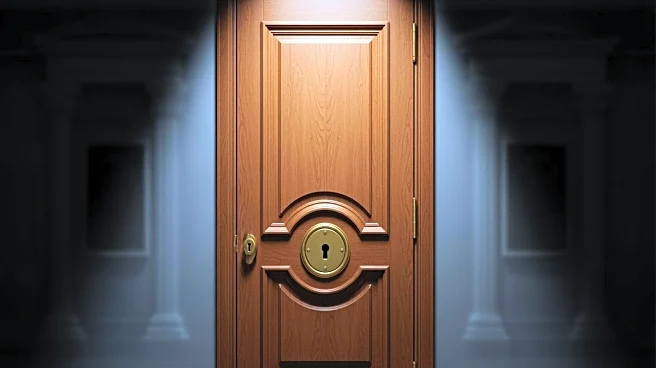What's Happening?
Speaker Mike Johnson is preparing to bring the House back into session to vote on a package aimed at reopening the government after a prolonged shutdown. The Senate is expected to pass a three-bill minibus and a continuing resolution (CR) with a January
30 expiration date, prompting the House to reconvene. Johnson faces significant challenges, including opposition from House Democrats who are dissatisfied with the lack of concessions in the spending package. The package does not address key issues such as extending Obamacare tax credits or limiting President Trump's ability to enact rescissions without Congress. The whip count is concerning, with several high-profile Democrats opposing the package.
Why It's Important?
The reopening of the government is crucial to resume normal operations and services that have been disrupted by the shutdown. The legislative package's passage is vital for maintaining government functions and addressing budgetary concerns. However, the lack of concessions for Democrats could lead to further political tensions and complicate bipartisan cooperation. The situation highlights the challenges of navigating legislative priorities and the impact of political dynamics on governance. The outcome of the vote will have significant implications for public policy and the political landscape, affecting stakeholders across various sectors.
What's Next?
The House is expected to reconvene soon, with Johnson aiming to secure enough votes to pass the package. The logistics of bringing lawmakers back to Washington are complicated by travel disruptions due to the shutdown. Johnson will need to manage internal party dynamics and negotiate with Democrats to ensure the package's passage. The White House supports the package, and President Trump may assist in rallying votes if necessary. The situation remains fluid, with potential adjustments to the package to address Democratic concerns and facilitate bipartisan support.















